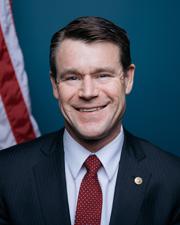0
Trading System Preservation Act
12/15/2023, 4:05 PM
Summary of Bill S 446
One of the key provisions of the Trading System Preservation Act is the establishment of stricter regulations and oversight for high-frequency trading, which involves the use of sophisticated algorithms to execute large numbers of trades in a fraction of a second. This practice has been criticized for creating instability in the markets and giving unfair advantages to certain traders.
Additionally, the bill aims to enhance transparency in the trading system by requiring more detailed reporting of trades and transactions, as well as increasing penalties for those found guilty of market manipulation or insider trading. It also seeks to improve coordination between regulatory agencies and promote cooperation with international partners to combat cross-border market abuses. Overall, the Trading System Preservation Act is designed to strengthen the regulatory framework governing the US financial markets and ensure that they operate in a fair and efficient manner. Supporters of the bill argue that it will help restore confidence in the trading system and protect investors from fraudulent activities, while critics raise concerns about potential unintended consequences and the impact on market liquidity.
Congressional Summary of S 446
Trading System Preservation Act
This bill authorizes the President to enter into covered plurilateral trade agreements. Covered plurilateral trade agreement refers to a sector-specific agreement within the framework of the World Trade Organization (WTO) involving foreign countries or foreign territories that form a subset of the members of the WTO that does not extend benefits on a most-favored-nation basis.
Specifically, the bill requires the U.S. Trade Representative to provide a classified briefing to specified congressional committees on the feasibility and advisability of pursuing and adopting covered plurilateral trade agreements.
After the congressional briefing, the bill directs the President to initiate negotiations for a covered plurilateral trade agreement when the President determines it is in the national interest to do so.
The bill authorizes the President to enter into these agreements in specified sectors of the economy (e.g., digital services and pharmaceuticals), with such authority expiring on July 1, 2028. Further, the President may proclaim a modification or continuance of any existing duty or continuance of existing excise or duty-free treatment to carry out an agreement.

